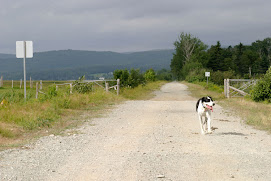Cambridge Chronicle 11/5/09
These are trying times for global warming activists. Despite years of work, people don’t seem to be listening. The Pew Research Center reported last week that only 36% of Americans believe that man causes global warming—down from 47% a year ago.
Climate scientists haven’t been listening to the mantra about the science being “settled.” This just in: In the August 2009 issue of Geophysical Research Letters, MIT’s Richard Lindzen and Yang-Sang Choi cast doubt on the IPCC climate models by revealing that “climate sensitivity” to things like CO2 is far lower than previously thought, therefore that carbon dioxide likely has negligible effect on the climate. If true, the entire global warming edifice crumbles.
The vast majority of “peer reviewed” studies offered as evidence for anthropogenic global warming document a 150-year long warming trend that no one denies (the glaciers are melting!), without analyzing the causes of warming. Many studies simply analyze potential catastrophic effects. The National Wildlife Federation (cited by the Cambridge Climate Protection Action Committee) cautions: “As the United States warms another 4 to 11 degrees on average over the next century, we will have more extremely hot summer days.” You don’t say. This is a tautology, not evidence.
To top it off, despite decades of conferences, millions of frequent flyer miles logged by green politicians and thousands of pages of climate treaties, those pesky CO2 emissions keep going up.
Cambridge is in similar straits. Despite the passage of our Climate Protection Program in 2002 that strived to lower CO2 emissions by 20% below 1990 levels, city-wide CO2 emissions for the period 1990 to 2010 are projected to increase by 29%.
Talk about “protecting the climate” didn’t seem to get results, so the rhetoric has been ratcheted up a notch. According to the Cambridge City Council, the School Committee and alarmed citizens at a hearing in September, Cambridge now faces a “Climate Emergency.”
The Climate Emergency Policy Order 17 is an official document, passed in May 2009, “recogniz[ing] that there is a climate emergency” and requesting the City Manager “to direct the appropriate city departments to increase the City's responses to a scale proportionate to the emergency.”
So, one might ask, if fear of global warming mobilizes people to work toward more efficient energy use and a cleaner environment, what’s the harm?
For one, attacking carbon-based energy is an attack on prosperity. Until we have a realistic alternative (current U.S. energy breakdown: fossil fuels 86%; wind 0.3%; solar 0.08%) limiting fossil fuels will make the world poorer, which will affect the world’s poor disproportionately. Global warming activists unwittingly abet human suffering.
On a local level, the Climate Protection Plan “failed” because Cambridge attracted robust development, in particular a significant investment in the biotech sector. Cambridge prospered, city government is flush and business property taxes keep residential rates the lowest in greater Boston.
Councillor Marjorie Decker commented at the Climate Emergency hearing: “There is the opportunity for Cambridge to maybe look at stricter guidelines…I’m never worried that a developer is going to be afraid to come into Cambridge because there’s another developer right in line waiting to get in here.”
This might be true in boom years, but is this a good time for “stricter guidelines” based on an irrational fear of carbon dioxide?
Secondly, global warming legislation is an attack on freedom.
City Councillor Craig Kelley and School Committee Member Patty Nolan (Chronicle letter, 10/15/09) offered a list of actions to tackle the climate emergency: “discourage car use,” “avoid long distance travel,” “give up meat,” “promote composting toilets,” “mandate following energy audit recommendations” and “radically change our consumption patterns.”
It’s one thing to change behavior through education and persuasion. But I sense a mood of frustration at the Climate Emergency hearing, a feeling that we tried to make these suggestions voluntary and we failed, so it’s time to go further. John Pitkin of the Mid-Cambridge Neighborhood Association called for “bold” action by the City, warning that, “these actions are going to affect people…Very likely they would include regulations.” Keren Schlomy of Green Decade Cambridge urged the city to pursue “home rule petitions to get authority to take actions that it doesn’t have now.”
Is this where we are headed? Bans on long distance travel, like in the Soviet Union? Mandatory vegetarianism within city limits? It sounds farfetched, but British legislators have already proposed carbon ration cards, whereby Big Brother would monitor and limit carbon consumption. Under the Markey-Waxman Climate Bill, you have to pass an energy audit before the federal government allows you to sell your house.
I am alarmed, not by a climate catastrophe, but by the harm that might be done by well-intentioned people in the name of saving us from carbon dioxide.
skip to main |
skip to sidebar


Culture War Dispatches
from a Progressive People's Republic
Daisy takes a walk

"I detest the notion of a new dawn in which homo sapiens would live in harmony. The hope this Utopia engenders has justified the bloodiest exterminations in history." --Francois Bizet, Khmer Rouge survivor
"Of all tyrannies, a tyranny sincerely exercised for the good of its victims may be the most oppressive." --C.S. Lewis
Daisy
